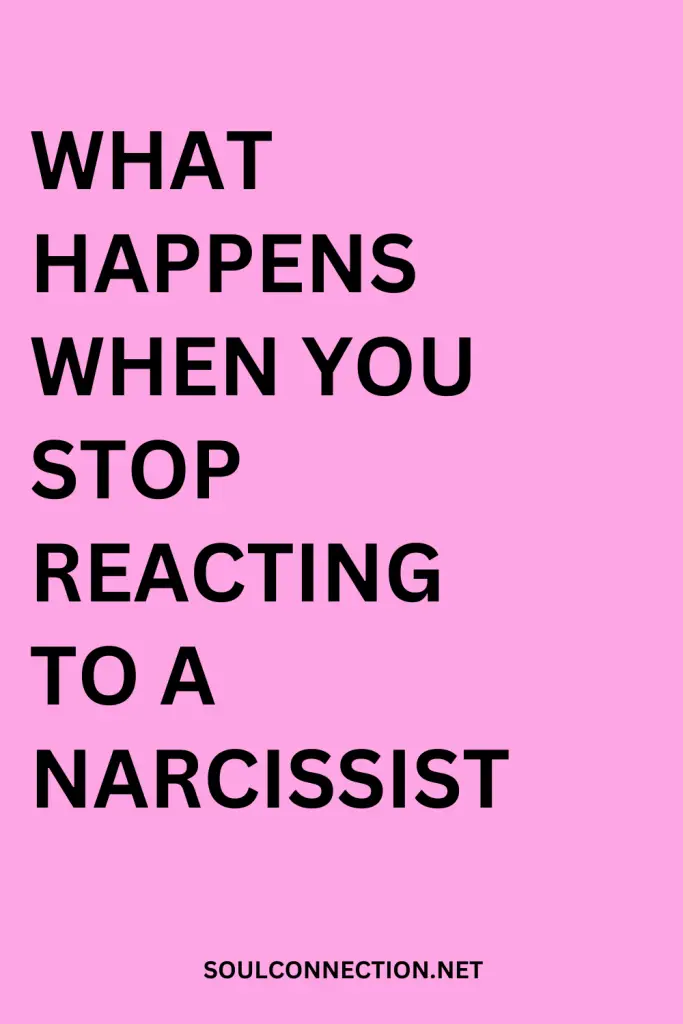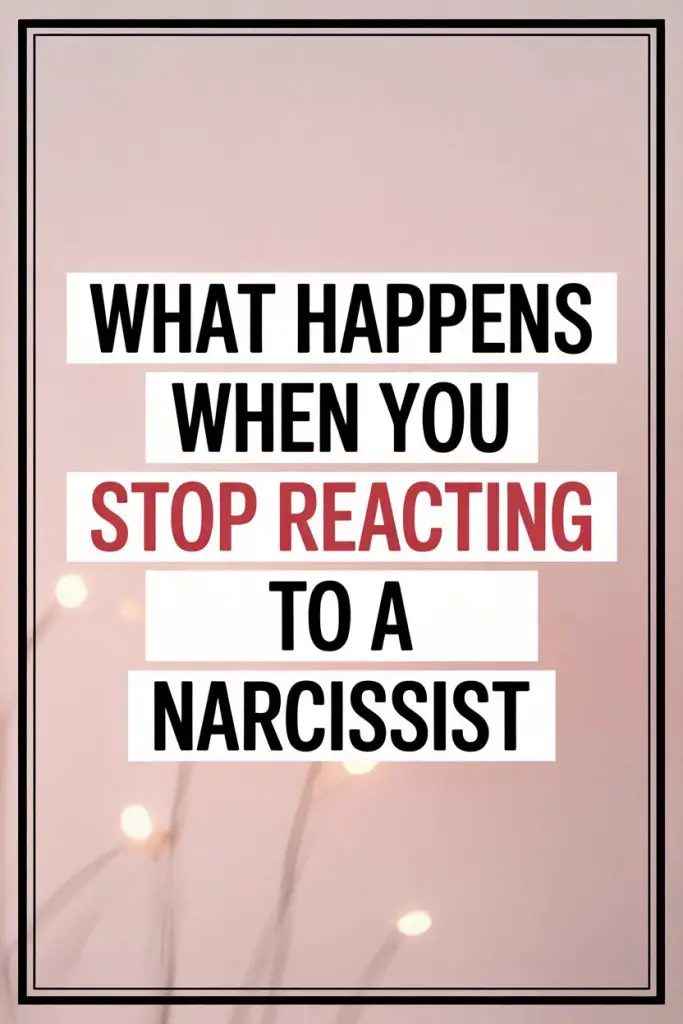Ever notice how a narcissist comes alive when they’ve got your attention, almost like a cat who’s just spotted a laser pointer? Something magical (or, well, alarming) happens the moment you pull the plug on that attention supply.
The real show begins not when you’re engaging, but when you go silent.
Here’s a peek behind the curtain at what to expect if you stop reacting to a narcissist—and how to navigate the fallout with your sanity intact.
The Drama Meter Redlines
Narcissists thrive on reactions. It’s their bread and butter, their cuppa tea, their emotional energy drink. When you stop responding, they don’t just shrug and move on. Quite the opposite.
Expect an uptick in theatrics. Outlandish accusations. Grand gestures. The sudden appearance of crocodile tears or outrage that could win an Oscar.
The narcissist’s goal? To jolt you back into the dance. Ignore the spotlight, and the performance often reaches fever pitch.
If you find yourself baffled by the escalation, you’re not alone. Silence is kryptonite to someone who relies on your emotional feedback. Keep calm and carry on—not reacting is the most infuriating thing you can do.
The Guilt Trip Gets Upgraded
Oh, you thought you’d heard every guilt trip in the book? Think again. A narcissist faced with your indifference often finds untapped reserves of creative manipulation.
Prepare for lines like, “After all I’ve done for you,” or “You’re so cold, I hardly recognize you.” Suddenly, you may be recast as the villain in their one-person play.
It’s not your job to convince them otherwise. Stay grounded. Remind yourself (mentally, not out loud—no need to feed the troll) that this guilt is designed to hook you.
The less you protest, the quicker the performance runs out of steam.
The Silent Treatment Counteroffensive
If you stop reacting, expect a taste of your own medicine: the narcissist’s infamous silent treatment. Except in their version, it’s not an act of self-care; it’s a power move.
You might get days of radio silence. Icy stares. Extra-loud sighs. All designed to make you panic, chase, or beg for their attention.
The trick here is to treat their silence like a telemarketing call: don’t pick up.
Resist the urge to chase after them. Your calm is your shield. While their withdrawal may sting, remember, you’re breaking a cycle—not being punished by karma.
Love Bombs and Breadcrumbs
Don’t be surprised if, after a period of ignoring you, the narcissist switches tactics and starts showering you with affection, gifts, or lavish apologies.
Flowers from nowhere. Texts declaring undying love. Promises of change.
This is known as “hoovering”—like a vacuum, they’re trying to suck you right back in.
If you’re tempted, pause. Ask yourself: Is this genuine change, or just another attempt to reset the cycle?
Usually, it’s the latter. (Spoiler: If someone truly valued your feelings, you wouldn’t have needed to go silent in the first place.)
The Blame Game Changes Hands
The narcissist, when deprived of your emotional responses, may suddenly flip the narrative. Now you’re “too sensitive,” “impossible to please,” or “emotionally unavailable.”
It’s classic projection. Instead of examining their own behavior (which, let’s be honest, is about as likely as a snowstorm in July), they pin the dysfunction on you.
The urge to defend yourself can be overwhelming. Resist. The more you try to justify, the deeper you’re pulled back in. You can’t argue someone into self-awareness.
Smear Campaigns Take Flight
Friends begin acting odd. Mutual acquaintances go quiet. Someone at work questions your character. Welcome to the narcissist’s other favorite hobby: the smear campaign.
When they can’t provoke you directly, they may recruit others into their drama. Lies and half-truths spread like wildfire, aimed at isolating you or forcing a reaction.
Painful? Absolutely. But remember: those who know you won’t be fooled for long. Stay above the fray. Rumors die when ignored, and your consistent behavior speaks volumes over time.
Your Self-Esteem Finds Its Feet
Here’s something the narcissist never intended: when you stop reacting, you start healing.
The emotional rollercoaster slows down. You have space to hear your own thoughts, trust your feelings, and rediscover life outside their shadow.
This is where real confidence grows—not overnight, but gradually, with every non-reaction.
People often fear that silence will make them “cold” or “uncaring.” In reality, it’s a boundary. You’re not punishing anyone; you’re protecting your mental health.
The Relationship Dynamic Shifts
Every time you refuse to feed the drama, you change the rules of engagement. The narcissist may escalate for a while, then lose interest, or even seek out a new source (it’s called “narcissistic supply” for a reason).
This can feel like rejection, especially if you’re used to defining your worth by their approval. Be gentle with yourself. The absence of chaos isn’t emptiness—it’s breathing room.
If the narcissist does move on, don’t take it as proof you were the problem. Their need for control and attention is a bottomless pit. You didn’t dig it, and you certainly can’t fill it.
How to Hold Your Ground When the Pressure Builds
Knowing what’s coming doesn’t make it easy to stick to your guns. Here are some tips that you can use tonight (or at least at your next text exchange):
- Practice the Gray Rock Method
Become as exciting as a sack of potatoes. Reply with “hm,” “okay,” or “noted.” The goal isn’t to be rude, just uninteresting. - Prep Your Support Network
If mutual friends or family get roped into the drama, let them know you’re taking space and why. You don’t have to trash-talk anyone—just state your boundaries. - Get Clear on Your Reasons
Write down why you’re choosing not to react. Keep the list handy for wobbly moments. - Don’t Expect Immediate Peace
It can get worse before it gets better. Think of it as emotional detox—it stings, then it heals. - Take Care of Yourself
Eat. Sleep. Walk. Binge your favorite show. Nurture your inner world while the outer chaos swirls.
When Silence Opens the Door to Healing
Stepping back from the narcissist’s emotional merry-go-round isn’t easy, especially if you’re used to the highs and lows. But this is where your real power lives.
That urge to explain, defend, or fix things? Let it pass. Every time you don’t react, you reclaim a piece of yourself.
The narcissist may never thank you for it, but your future self will.
You won’t become heartless. You’ll become discerning.
And in the quiet that follows, you’ll remember the sound of your own laughter—and just maybe, someone far more deserving of your reaction.


